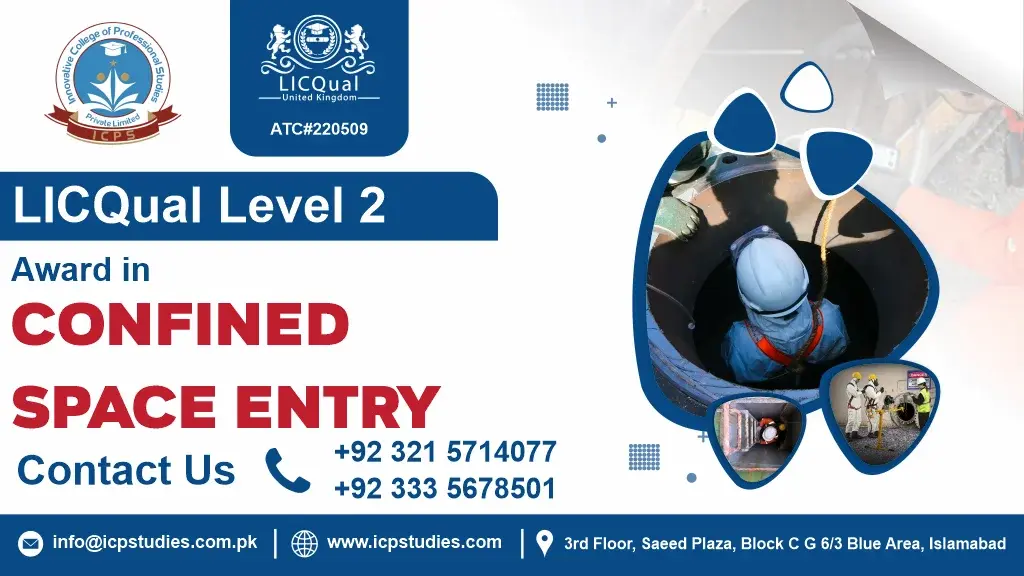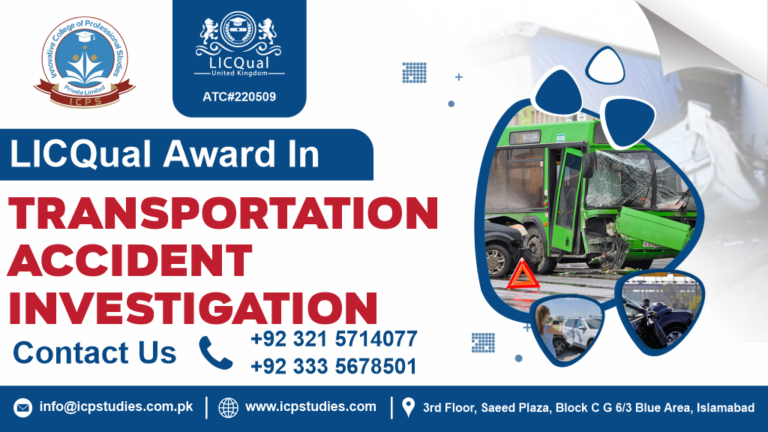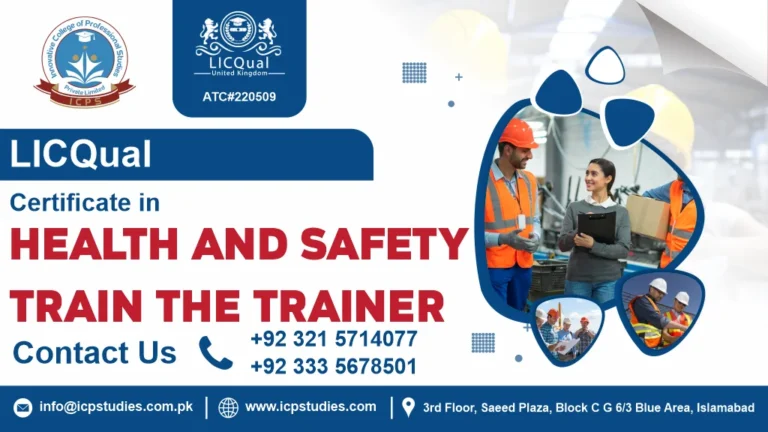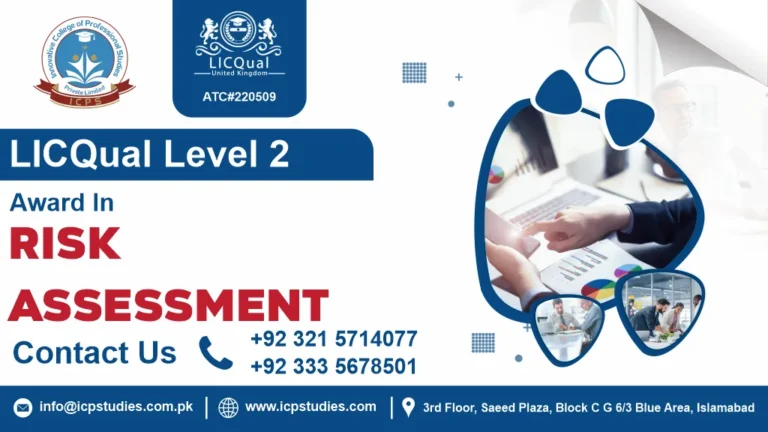Become a Confined Space Entry Expert
Looking to advance your skills and knowledge in confined space entry? Look no further than our Level 2 Award in Confined Space Entry course.
This extensive course aims to provide you with the necessary understanding and hands-on abilities required to enter and work in confined spaces securely and efficiently. Emphasizing the identification of hazards and the assessment of risks, you will acquire the skills to recognize and reduce potential threats, thereby guaranteeing the safety of both yourself and your colleagues.
Our experienced instructors will guide you through a range of practical exercises, including simulated confined space entries, enabling you to put your new skills into practice in a controlled environment.
Upon completion of the course, you’ll receive a Level 2 Award in Confined Space Entry, demonstrating your competence and commitment to safe working practices.
Enroll today and take the first step towards becoming a skilled and confident confined space entry professional.
All About Level 2 Award in Confined Space Entry
Key Takeaways
Course Overview
If you’re seeking to enhance your proficiency in confined space entry, the Level 2 Award in Confined Space Entry course presents an excellent opportunity. Tailored to equip learners with essential knowledge and skills for safe operations within confined spaces, this course is a comprehensive endeavor.
Throughout the Level 2 Award in Confined Space Entry course, participants delve into the myriad hazards inherent in confined space work, encompassing risks such as asphyxiation, fire, explosion, and drowning. Additionally, learners familiarize themselves with the array of equipment and tools crucial for safe navigation within confined spaces, including breathing apparatus, gas detectors, and communication devices.
Legal requisites for confined space work, delineating the responsibilities of both employers and employees, form a core component of the curriculum. Furthermore, participants explore risk assessment methodologies, establish safe work systems, and master emergency protocols tailored to confined space environments.
Completion of the Level 2 Award in Confined Space Entry course empowers individuals with the knowledge and competencies necessary to navigate confined spaces safely. This course caters to professionals across diverse industries, including construction, manufacturing, and utilities, providing indispensable skills for safe and effective operations.
Admission Criteria
If you’re interested in taking the Level 2 Award in Confined Space Entry course, there are a few entry requirements you should be aware of. These requirements are in place to ensure that you have the necessary skills and knowledge to succeed in the course and ultimately, in your future career.
- Age Requirement: Candidates must be at least 18 years old to take this course.
- Physical Fitness: This course requires you to undertake activities that involve working in confined spaces, which may include physically demanding tasks. Therefore, it is essential that you have a good level of fitness to complete the course.
- Medical Fitness: You must be in good health and free from any medical conditions that could affect your ability to work safely in confined spaces. You will be required to complete a medical questionnaire to ensure that you are fit to take the course.
- English Language: To take the Level 2 Award in Confined Space Entry course, you must have a good command of the English language. This is because the course materials and assessments will be delivered in English.
- Experience: While no previous experience is necessary to take this course, it is recommended that you have some knowledge of working in confined spaces or a related industry.
By fulfilling these entry requirements, you will be well-prepared to take the Level 2 Award in Confined Space Entry course and start your journey towards a career in this field.
Mandatory Units
Throughout this course, you will learn about the legal requirements surrounding confined space entry, the hazards associated with confined spaces, and the procedures and precautions that must be taken to ensure your safety and the safety of those around you.
The course will cover the following topics:
- Legal Requirements
- Definition of a confined space
- Relevant regulations and standards
- Duties and responsibilities of employers and employees
- Hazards of Confined Spaces
- Atmospheric hazards (e.g. lack of oxygen, toxic gases)
- Physical hazards (e.g. tripping hazards, uneven surfaces)
- Biological hazards (e.g. bacteria, viruses)
- Risk Assessment
- Identifying and assessing risks
- Developing a safe system of work
- Emergency procedures
- Personal Protective Equipment (PPE)
- Types of PPE required for confined space entry
- Proper selection, use, and maintenance of PPE
- Safe Entry and Exit Procedures
- Pre-entry checks and procedures
- Communication procedures
- Safe entry and exit procedures
- Emergency Procedures
- Types of emergencies and their potential consequences
- Evacuation procedures
- Rescue procedures
Upon completion of this course, you will have the knowledge and skills to safely enter, work in, and exit a confined space. This will enable you to comply with legal requirements, reduce risks associated with confined space entry, and protect the safety of yourself and others.
Learning Outcomes
Learning outcomes for the “Level 2 Award in Confined Space Entry” course are:
- Understand the legislation and regulations relating to confined space entry.
- Identify the potential hazards associated with confined space entry and develop risk assessments.
- Learn how to use personal protective equipment (PPE) and gas detectors effectively.
- Understand the procedures for safe entry and exit of confined spaces, including emergency procedures.
- Learn how to communicate effectively within a team during confined space entry.
- Understand the responsibilities of a confined space entry supervisor and implement safe working practices.
- Identify the roles and responsibilities of rescue teams and learn how to carry out rescue operations safely.
- Gain knowledge of the importance of ventilation, air quality monitoring, and atmospheric testing during confined space entry.
- Learn how to use and maintain equipment used in confined space entry, including breathing apparatus and communication systems.
- Understand the importance of training and competence in confined space entry and the legal requirements for training.
Ideal Candidate
The Level 2 Award in Confined Space Entry is designed to provide learners with the knowledge, skills, and practical competence to safely work in and around confined spaces. It is ideal for professionals across industries where confined space work is required, ensuring compliance with safety regulations and reducing the risk of accidents.
1. Industrial and Maintenance Workers
- Employees working in industries such as manufacturing, utilities, construction, and oil & gas.
- Individuals who enter or work near confined spaces like tanks, silos, pipelines, or storage vessels.
- Learn to recognize confined space hazards, including oxygen deficiency, toxic gases, and restricted movement.
- Develop skills to use appropriate personal protective equipment (PPE) and safety gear.
- Gain confidence in following safe entry and exit procedures.
- Understand emergency response and rescue procedures in confined spaces.
- Comply with workplace safety regulations and industry standards.
- Minimize the risk of accidents, injury, or fatalities during confined space operations.
2. Supervisors and Team Leaders
- Managers responsible for overseeing teams that work in confined spaces.
- Learn to plan and implement safe working procedures.
- Ensure team members are trained and competent in confined space safety.
- Conduct risk assessments and monitor ongoing safety compliance.
- Coordinate rescue operations and emergency preparedness.
- Promote a safety culture and enforce regulatory compliance.
- Identify hazards and implement control measures effectively.
- Document confined space work procedures and audits.
3. Health and Safety Representatives
- Workers tasked with advocating for safe practices in the workplace.
- Gain knowledge of confined space legislation, standards, and best practices.
- Conduct safety inspections and risk assessments for confined spaces.
- Advise colleagues and management on hazard control and safety measures.
- Support emergency preparedness and rescue planning.
- Enhance their credibility as safety advocates in high-risk environments.
- Ensure compliance with occupational health and safety regulations.
- Promote a proactive safety culture among employees.
4. Contractors and Maintenance Teams
- Professionals involved in contract work, plant maintenance, or equipment servicing.
- Learn to identify confined space hazards specific to their work environment.
- Develop skills to safely enter, operate, and exit confined spaces.
- Apply risk assessments and control measures in practical scenarios.
- Understand the use of monitoring equipment for air quality and gas detection.
- Respond effectively in emergency situations.
- Comply with client and regulatory safety requirements.
- Reduce liability and operational risks in high-risk work areas.
5. Emergency Response and Rescue Personnel
- Individuals responsible for confined space rescue and emergency interventions.
- Understand safe rescue procedures and contingency planning.
- Learn to use rescue equipment effectively.
- Coordinate with teams during emergencies in confined spaces.
- Apply risk assessment and control principles during rescue operations.
- Improve readiness for high-risk environments.
- Enhance personal and team safety skills.
- Support compliance with industry and regulatory standards.
6. Vocational Learners and Career Changers
- Individuals seeking a career in industrial, maintenance, or high-risk work sectors.
- Acquire essential skills and certifications to enter industries requiring confined space operations.
- Gain practical knowledge of hazards, safety procedures, and emergency response.
- Increase employability and career progression opportunities.
- Understand regulatory and legal responsibilities.
- Learn to conduct risk assessments and implement control measures.
- Develop confidence in working safely under confined space conditions.
- Build a foundation for advanced safety qualifications and training.
The Level 2 Award in Confined Space Entry is perfect for anyone working in or around confined spaces who wants to enhance safety knowledge, comply with regulations, and reduce the risk of accidents or fatalities.
FAQs Related to Level 2 Award in Confined Space Entry







